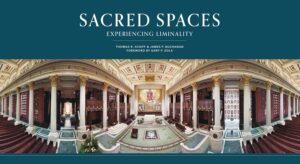By: Ariel Miller
YES on Issue 1, urge the Ohio Council of Churches and many other faith-based groups. Don’t let the misleading ballot summary confuse you. Ohio’s current Congressional and state districts were created by a Redistricting Commission entirely composed of elected officials, who used their authority in 2021-22 to produce a supermajority in our statehouse and our US House delegation far exceeding the majority party’s share of statewide votes. When legislators create “safe” districts to preserve their power, they can ignore the views of the majority of Ohioans on issues like racial equity and gun safety, and can instead play to lobbyists and ideological base voters. In an uncompetitive district, the minority who vote in primaries determine the election outcome. Moderate candidates are often eliminated in primaries if their views don’t please the ideological base in their district.
To prevent conflict of interest, the Issue 1 “Citizens not Politicians” amendment proposed for Ohio’s constitution would ban elected officials and lobbyists from serving on Ohio’s Redistricting Commission. Supporters including many people of faith collected over 500,000 valid signatures to qualify Issue 1 for the November ballot. The amendment would require a public, transparent process to produce district maps. The ballot summary – written by elected officials on the Ohio Ballot Board – misleads voters by stating that the reform would “require” rather than prevent gerrymandering.
The failure of our legislature to represent Ohioans shows up in two key concerns for many judicatories: racial justice and gun safety. The 2024 Ohio Pulse Poll just released by Baldwin Wallace University shows that 84.3% of Ohio voters support teaching about the history of race and racism in Ohio schools, a significant increase from 75% in 2022! That includes 84.2% of Ohio parents. But the Ohio Legislature has stripped the Ohio School Board of its authority over curriculum, after a titanic battle following the School Board’s 2020 resolution to work on overcoming systemic racism documented in a study of 600 school districts. SB 83, if passed, would virtually eliminate diversity, equity and inclusion from Ohio’s public universities and curtail teaching about “divisive content” on topics including race and climate change.
Gun violence is the leading cause of death for American children and teens. Ohio voters overwhelmingly support stronger gun safety laws including red flag laws (73.4%) and expanding background checks for gun purchases by people 18-21 (85.6%). Only 38.5% support permitless conceal-carry, but our legislature passed a law eliminating the training and permit requirement for conceal-carry, and has stalled bills to close loopholes in background checks, or to enact red flag options to temporarily remove guns from people who pose a danger to themselves or others.
Endorsers of Issue 1 include Ohio’s chapters of the League of Women Voters, the NAACP, and the A. Philip Randolph Institute, the Amos Project, Faith in Public Life, the Episcopal Diocese of Southern Ohio, the Hunger Network of Ohio (a Christian advocacy nonprofit), the National Council of Jewish Women of Cleveland, the Woman’s City Club, and many other statewide and regional nonpartisan groups.
“Just know that a Yes vote establishes the nonpartisan commission and a No vote keeps the current process in place,” wrote the Ohio Council of Churches in their Oct. 10 newsletter. “Please spread the word to your friends, family, and faith communities to vote Yes on Issue 1 this election. The Council has worked tirelessly with our faith, civic, and community partners since 2015 to ensure that legislative maps in Ohio are drawn fairly…We believe voters should choose their representation, not the other way around. We witnessed last year the refusal of the current redistricting commission to obey the very laws they swore to uphold when they drew unfair maps not once, not twice, but seven times. Issue 1 is designed to correct this miscarriage of justice by replacing the current commission made up of elected officials.”
The Citizens Not Politicians amendment was drafted by a team of Republican, Democratic, and Independent Ohio civic leaders including former Ohio Supreme Court Chief Justice Maureen O’Connor, a lifelong Republican and former Lieutenant Governor who wrote or signed all seven rulings finding the 2021-22 maps unconstitutional for providing excessive partisan advantage under the criteria approved by voters in 2015 and 2018 amendments to the Constitution, which specified that all members of the Redistricting Commission be current elected officials.
For more background on state policy trends on issues including energy policy, contact Ariel at arielmillerwriter@gmail.com
Ariel Miller is the Advocacy Co-Chair, Faith Communities Go Green, a collaboration of Green Umbrella and EquaSion.






